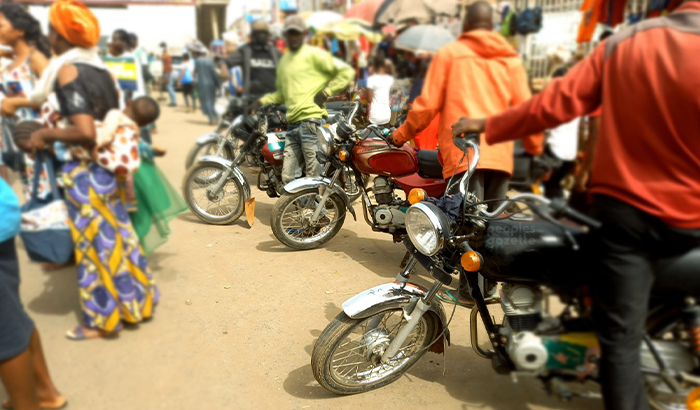-

-
Wikirise.com Advertise with Us HereStats: 4,783 members, 41,616 Posts
Number of Comments : 2,630
Date: Tuesday, 24th December 2024
Okada Ban: NGO tasks Buhari regime on safety nets to buffer economic impact
By Godwin Emmanuel - July 26, 2022 | Categories: Business Tags: Economy
Share this post:

ActionAid Nigeria (AAN) has urged the federal government to consider alternative safety nets to buffer the impact of the planned ban on ‘Okada’ on the affected population before taking such action.
This is contained in a statement by Lola Ayanda, communications coordinator ActionAid Nigeria in Kaduna.
On July 21, the federal government said it was considering a nationwide ban on commercial motorcycles, popularly known as okada, as well as mining activities in a bid to stem the rising insecurity across the country.
Abubakar Malami, Attorney-General of the Federation, made this known after a national security council meeting at the presidential villa, Abuja.
The NGO said that the ban on Okada and illegal mining activities by the Federal Government as hinted by Malami, although will stem the rising insecurity across the country but it will undoubtedly further deepen the national multidimensional poverty index if measures are not taken to address the population involved.
As a way out, the NGO urged the government to encourage investments and job creation to engage those that will lose their livelihoods.
“ActionAid Nigeria agrees that placing a ban on the use of motorcycles and mining activities may cut the supply of logistics and source of funds for the purchase of arms to the terrorists, but while this is being contemplated in the national interest to combat insecurity, there must be well thought-out alternatives to lessen the effects of the attendant loss of livelihoods on the people that will be affected.”
The NGO noted that the ban must be implemented in a way that it must be implemented in a way that will not further worsen the country’s dire economic situation.”
According to the NGO, the number of people using Okada represents a significant segment of the population whose condition will be worsened as a result of food inflation, rising unemployment, the rising cost of living among other economic challenges, and other issues that are responsible for why more people are falling into the poverty net.
The AAN also emphasized on the need for the government to invest in agriculture value-chain, especially girl child education.
It also urged the government to prioritise the healthcare of its citizenry and enhance economic opportunities while embracing technology to improve economic productivity and opportunities for the citizens.
AAN also expressed willingness to join other development partners available to work with the government at all levels to create a sustainable alternative for this population.
On September 15, 2021, President Muhammadu Buhari said 1.6 million poor and vulnerable households, comprising more than eight million individuals were currently benefiting from the Conditional Cash Transfer programme, while N300 billion has been disbursed to farmers.
Speaking virtually at the opening ceremony of the 14th Annual Banking and Finance Conference of Chartered Institute of Bankers of Nigeria, the president said the National Social Register of Poor and Vulnerable Nigerians had 32.6 million persons from seven million poor and vulnerable households identified.
Mr Buhari said the National Social Investment Programme is the biggest in Sub-Saharan Africa and one of the largest in the world.
(NAN)